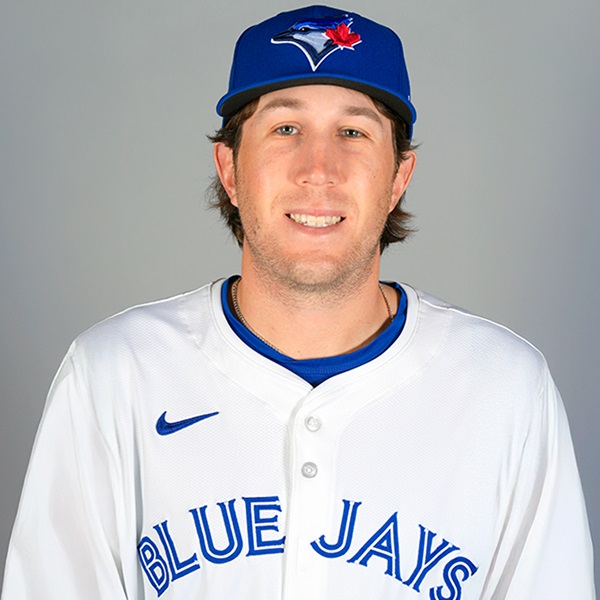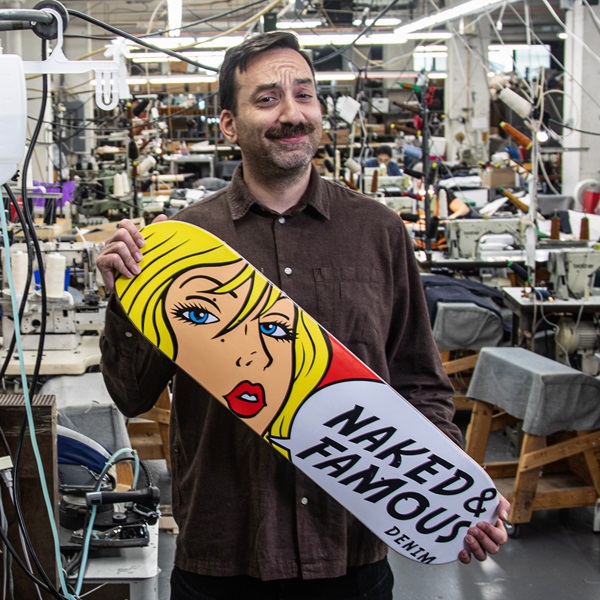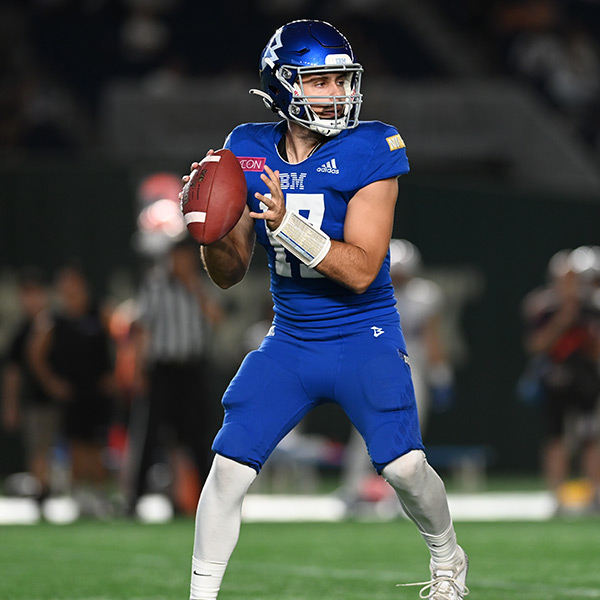Quebec’s famous hockey brothers Maurice and Henri Richard made their mark by playing for the same team, the Montreal Canadians. They aren’t the only examples of siblings excelling in professional sports. Think of skaters Isabelle and Paul Duchesnay, or Serena and Venus Williams in tennis. In the world of hockey, we have seen three Šťastnýs, four Staals and six Sutters.
The Darche brothers, Jean-Philippe, BSc’97, and Mathieu, BCom’00, stand out from the others in one way: the siblings (both members of the McGill Sports Hall of Fame) excelled in different sports, football and hockey.
Jean-Philippe played professional football for nine years, including six with the Seattle Seahawks and two with the Kansas City Chiefs. He continues to be associated with the Chiefs, albeit in a very different role. As one of its team physicians, he has earned three Super Bowl rings.
Mathieu played professional hockey for almost 13 years, including three with the Montreal Canadiens. He is now the assistant general manager of the Tampa Bay Lightning and has been a part of the management team behind two Stanley Cup victories.
“Our parents introduced us to all sports. They encouraged us, but never pushed us. They were interested in it from the perspective of our personal development.”
Mathieu Darche
A third Darche sibling, elder sister Isabelle, swam competitively at the national level. It makes one wonder what the Darche parents fed their kids for breakfast.
“Our parents introduced us to all sports. They encouraged us, but never pushed us. They were interested in it from the perspective of our personal development,” says Mathieu Darche. Jean-Philippe says his parents never plotted to get them places on the best teams or lobbied coaches for more playing time. “We dreamed of becoming professional athletes, but our parents didn’t have a program for us.”
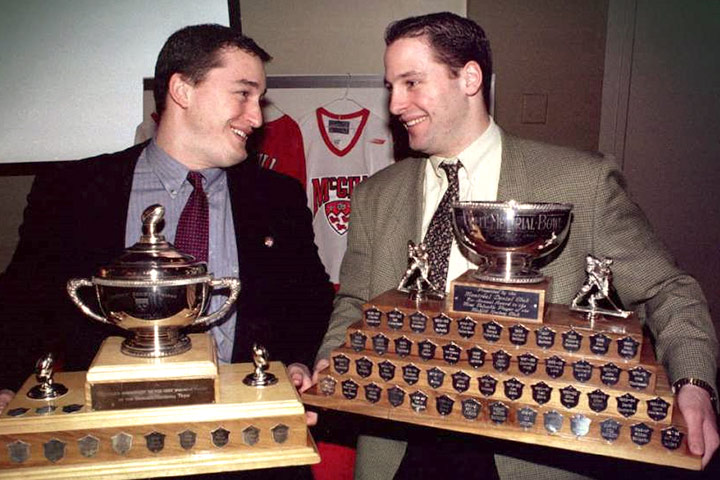
“We logged a lot of miles driving them to swimming competitions and hockey and football games,” recalls the brothers’ father, Édouard. “We had to get up very early, very often, but I’ll never regret it.”
The brothers are the third generation of Darches to graduate from McGill, following in the footsteps of their great-grandfather Clément-Édouard Darche, MDCM 1899, and their grandfather Jean Henri Darche, MDCM’39. Their father Édouard initially considered a career in medicine, but switched to accounting after two years at McGill.
With that family history, it was no surprise that Jean-Philippe developed a special bond with the McGill football team’s two doctors, Scott Delaney, MDCM’91, and Vincent Lacroix, BSc’86, MDCM’90, as well as with David Mulder, MSc’65, the long-time chief physician for the Canadiens.
While Mathieu did well at school, he claims he didn’t study with the same enthusiasm as his brother. “My wife, Stéphanie Roberge [BCom’01], whom I met at McGill, used to tell me that my books cracked because I didn’t open them often enough.”
McGill sports information officer Earl Zukerman, BA’80, doesn’t think that is a fair assessment. “Like his brother, Mathieu Darche won top honours as a student athlete. In 2000 he won the Dr. Randy Gregg Award for Canadian student athletes who demonstrate outstanding achievement in ice hockey, academics, and community involvement. Two years before that, Jean-Philippe won the equivalent for football, the Russ Jackson Award.”
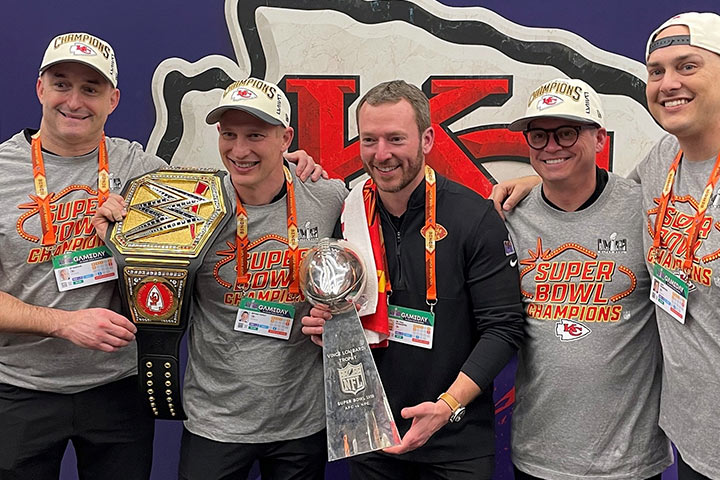
When Mathieu started thinking seriously about the possibility of professional hockey, he decided to go for it. If things didn’t work out, he reasoned, “You can always go back to school.”
Jean-Philippe’s decision to pursue a pro career was more complicated – and the subject of debate between the Darche parents.
“My wife wasn’t thrilled about the idea of Jean-Philippe dropping out of medical school to pursue a career in professional football, but I was sure he would return,” Édouard says.
Jean-Philippe originally thought he’d play for one or two seasons and then return to medical school. He wasn’t expecting his football career to take off quite the way it did. A long snapper with the Canadian Football League’s Toronto Argonauts, he had never counted on being noticed and recruited by NFL football scouts.
“That’s when things got complicated. I knew if I prolonged my career, I might have to redo my first two years of medicine. Those are the worst two years. No one wants to do them over.”
Mathieu has been one of his brother’s biggest supporters throughout his career – as Jean-Philippe has been for him. “Our boys called each other almost every day,” says Édouard. “Even though they were playing two different sports, they had the same issues with their coaches, their teammates and all the rest.”
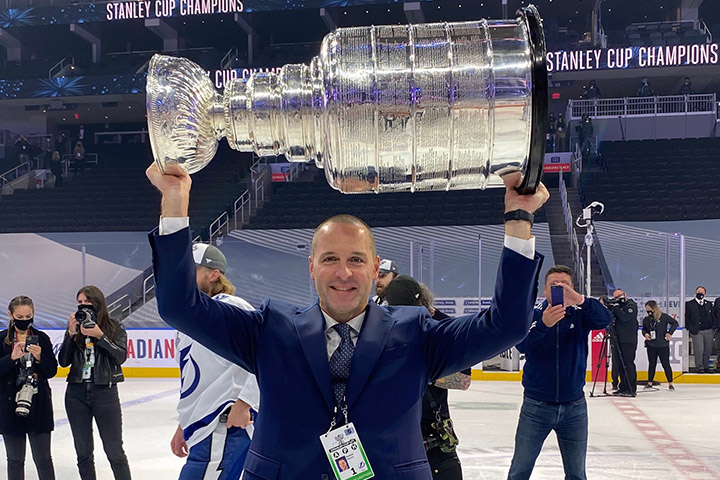
Unlike many former athletes, the two brothers both made a smooth transition once they retired from playing sports – although Jean-Philippe says there were a few bumps along the way.
“Even though I’d planned to return to medicine, it was harder than I thought. You suddenly go from a being in a very competitive, structured environment to, well, nothing. The phone doesn’t ring anymore. It can be devastating for some people,” says Jean-Philippe, who discovered that, at the age of 33, he was also a little rusty when it came to academics.
“Fortunately, as a student athlete, I’d already learned how to be productive and manage my time well.”
Mathieu played professionally until the age of 36. Then, as luck would have it, he met an executive from Delmar International, a customs brokerage firm that specializes in freight, while he was participating in a charity event.
Impressed by Mathieu’s interpersonal skills and marketing background, the company offered him a position as its director of business development and public relations, and Mathieu was soon promoted to vice president of sales and marketing for Canada.
“I worked there for six years and loved it. I learned how to manage people and budgets, which would be enormously helpful for my role today as assistant general manager of a hockey team.”
Building a winning team isn’t straightforward, says Mathieu. You need the right blend of skills and personalities. “A team isn’t just players. I manage 65 people off the ice: scouts, coaches, analysts and more. To have a winning team, you need to ensure there’s leadership across the board.”
Jean-Philippe, meanwhile, continues to follow developments in professional sports closely. As a member of the NFL’s committee on player health and safety, he reads new studies on everything from cleats, helmets, and mouthguards to playing surfaces and more.
Treatments have improved so much over the years, says Jean-Philippe, that many injuries, once considered devastating, no longer spell the end of a career. And, thankfully, when it comes to concussions, players, parents, and teams are all less likely to hide symptoms. “We monitor developments very closely. Now, we’d like to do something about the fact that more players get injured at the beginning and end of the season.”
When asked if Canadian universities should do more to encourage students to pursue high-level sports, the Darche brothers see things differently. Jean-Philippe thinks Canadian universities are doing quite enough. The mistake, he says, would be to compare themselves to American universities, which invest millions in what amount to professional mini leagues. “Canadian universities offer excellent opportunities and produce excellent student athletes. That’s the way it should be.”
Mathieu, who became president of Quebec’s Ligue de hockey préparatoire scolaire in 2016, believes deeply in the educational value of sports. He was disappointed to discover that only three Quebec universities offer a university hockey program.
“Our public education system has many advantages, but one of its shortcomings is that we undervalue sports. There’s a tendency to think that we shouldn’t spend taxpayers’ money on sports if it comes at the expense of academics. That’s a shame because student sports [offer] many advantages, like promoting a work ethic. Sports also help young people, especially boys, stay in school.”
Story translated from French by Julie Barlow, BA’91
